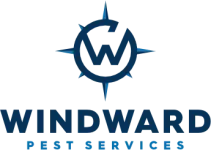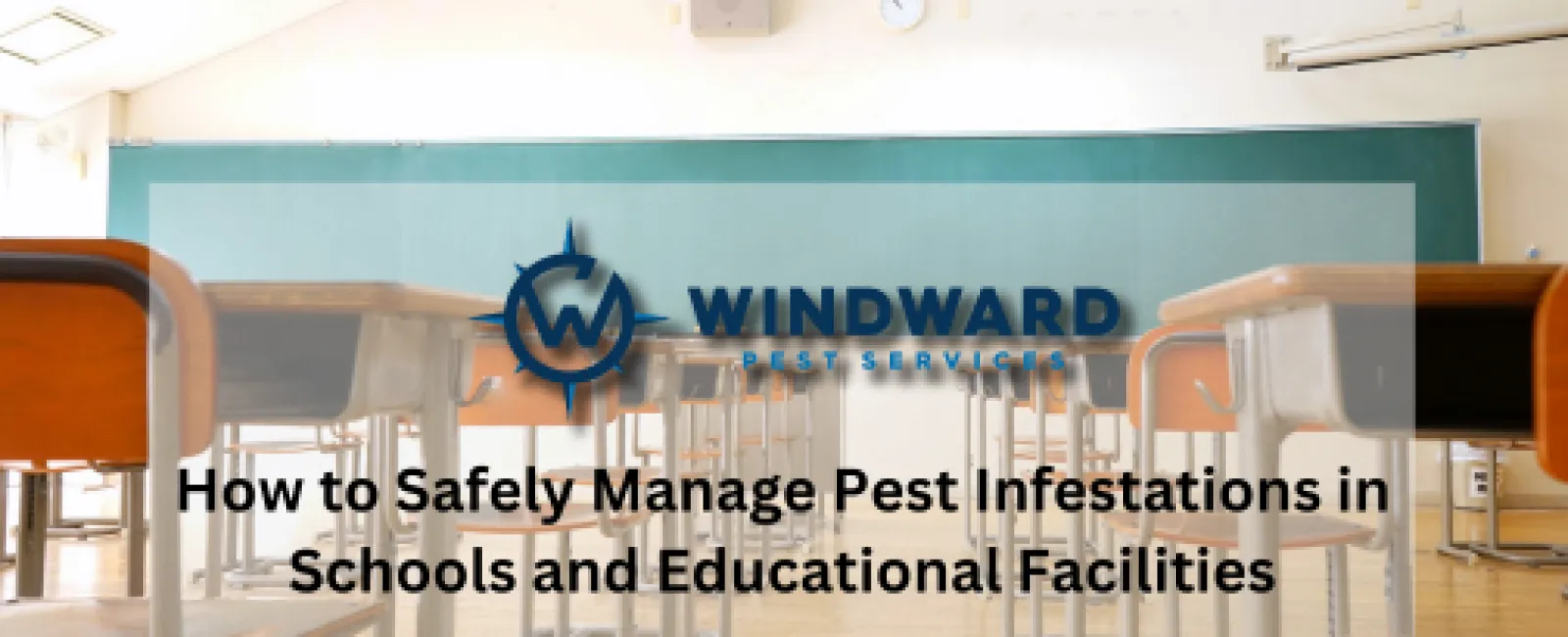Schools and educational facilities play a pivotal role in shaping the future of young minds. However, maintaining these institutions goes beyond academic excellence; ensuring a safe, clean, and pest-free environment is equally critical. Pest infestations in schools can disrupt the learning process, pose significant health risks, and compromise the integrity of the institution's reputation.
In Atlanta, where the warm and humid climate creates an ideal environment for various pests, addressing infestations in schools requires a proactive and informed approach. Professional services like Windward Pest Services pest inspections and Atlanta interior and exterior pest treatments are essential for managing and preventing pest issues effectively. This article explores the challenges, risks, and solutions for safely managing pest infestations in educational facilities, with a focus on comprehensive, eco-friendly strategies.
Understanding Pest Infestations in Schools
Educational facilities are susceptible to a variety of pests due to the combination of food sources, moisture, and high foot traffic. Common pests that invade schools include:
1. Rodents (Mice and Rats)
Rodents are attracted to food storage areas, cafeterias, and waste disposal sites. They can chew through materials, spread diseases, and contaminate food supplies.
2. Cockroaches
Cockroaches thrive in warm, damp environments such as kitchens and boiler rooms. These pests can exacerbate asthma and allergies, particularly in children.
3. Ants
Ants are often drawn to food crumbs and spills. Carpenter ants can damage wooden structures, while fire ants pose a painful threat to students and staff.
4. Termites
Though often overlooked, termites can silently cause structural damage to buildings, leading to expensive repairs if left untreated.
5. Bed Bugs
Bed bugs can spread quickly in dormitories and common areas, causing discomfort and requiring extensive eradication measures.
6. Flies and Mosquitoes
Flies and mosquitoes can disrupt activities and spread diseases, particularly in outdoor play areas and cafeterias.
Why Pest Control in Schools Requires Special Care
The presence of children and staff in schools makes pest control particularly challenging. Effective pest management in educational facilities must:
- Prioritize Safety: Treatments must be safe for children, teachers, and staff, avoiding exposure to harmful chemicals.
- Minimize Disruption: Pest control activities should not interfere with the daily operations of the school.
- Comply with Regulations: Schools must adhere to local and state regulations governing pest control and pesticide use.
Signs of Pest Infestations in Schools
Regular monitoring and inspections are essential for identifying pest infestations early. Look for the following signs:
- Rodent Activity: Droppings, gnaw marks, nests, and scratching sounds in walls or ceilings.
- Cockroach Infestation: Shed skins, droppings, and a musty odor near kitchens or storage areas.
- Termite Damage: Mud tubes, hollow-sounding wood, and discarded wings.
- Ant Trails: Lines of ants near food storage or preparation areas.
- Increased Pest Sightings: Flies, mosquitoes, or bed bugs seen in common areas or classrooms.
Preventative Measures for Pest Control in Schools
Proactive prevention is the most effective way to manage pest infestations in educational facilities. Implement these steps to reduce pest activity:
1. Conduct Regular Inspections
Professional Windward Pest Services pest inspections can identify vulnerabilities and signs of pest activity. These inspections should be conducted quarterly or more frequently if pests are a recurring issue.
2. Maintain Cleanliness
Ensuring that classrooms, cafeterias, and storage areas are clean and free of food debris is critical. Regular cleaning reduces the availability of food sources for pests.
3. Seal Entry Points
Implement rodent exclusion measures by sealing cracks, gaps, and holes in walls, doors, and windows. Installing door sweeps and weather stripping can also deter pests.
4. Address Moisture Issues
Leaks and standing water provide breeding grounds for pests like cockroaches and mosquitoes. Repair plumbing issues and ensure proper drainage to eliminate moisture.
5. Proper Waste Management
Ensure that trash bins are sealed and emptied regularly. Outdoor dumpsters should be located away from school buildings and cleaned frequently.
6. Educate Staff and Students
Train staff and educate students about the importance of cleanliness and reporting signs of pests. Awareness is a key component of effective pest prevention.
Safe and Effective Pest Control Solutions
When infestations occur, professional pest control is essential. In schools, safety and effectiveness are paramount, making the selection of an experienced provider like Windward Pest Services crucial.
1. Integrated Pest Management (IPM)
IPM is an eco-friendly approach that combines preventative measures, targeted treatments, and education. This strategy minimizes the use of harmful chemicals, making it ideal for schools.
2. Quarterly Services
Engaging in quarterly services ensures ongoing protection against seasonal pests. Regular treatments address emerging issues and provide consistent pest management throughout the year.
3. Atlanta Interior and Exterior Pest Treatments
Comprehensive Atlanta pest control involves treating both interior and exterior areas. Exterior treatments create a protective barrier, while interior treatments address pests that have already entered the facility.
4. Rodent Control and Exclusion
Rodent control is critical in schools, where food storage and waste areas can attract mice and rats. Professional rodent exclusion measures ensure that entry points are sealed and infestations are eradicated.
5. Specialized Treatments for Sensitive Areas
In areas like kitchens, cafeterias, and daycare centers, pest treatments must be carefully applied to avoid contamination. Windward Pest Services specializes in customized solutions for these sensitive environments.
The Role of Professional Inspections
Regular inspections by pest control professionals are vital for maintaining a safe learning environment. These inspections identify vulnerabilities, assess pest activity, and provide actionable recommendations for improvement. Windward Pest Services pest inspections are thorough and tailored to the unique needs of schools in Atlanta.
Why Choose Windward Pest Services for Atlanta Pest Control
Windward Pest Services has earned a reputation for excellence in Atlanta pest control. Their commitment to safety, efficiency, and customer satisfaction makes them the ideal partner for schools and educational facilities. Key advantages include:
- Expertise in Atlanta interior and exterior pest treatments.
- Customized pest control plans tailored to educational settings.
- Safe and eco-friendly solutions compliant with local regulations.
- Preventative measures like quarterly services and rodent exclusion.
Maintaining a pest-free environment in schools and educational facilities is essential for safeguarding the health and well-being of students, staff, and visitors. With the warm and humid climate of Atlanta posing significant pest challenges, proactive prevention and professional pest control are more important than ever.
By implementing effective strategies such as regular inspections, cleanliness, and Atlanta interior and exterior pest treatments, schools can create a safe and conducive learning environment. Professional services like Windward Pest Services pest inspections and quarterly services ensure long-term protection, addressing pest issues at their source and preventing future infestations.

